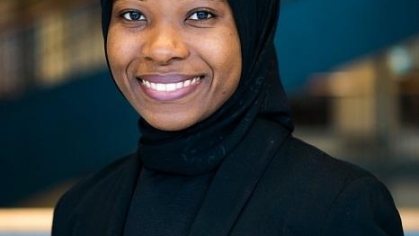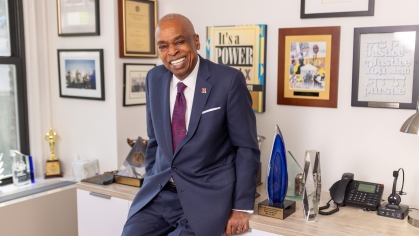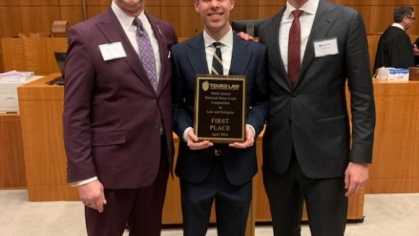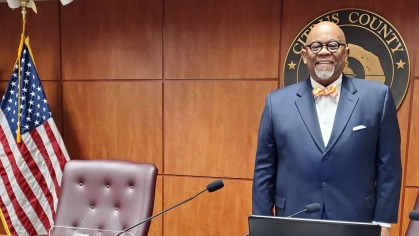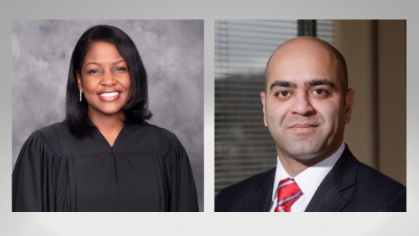
Two trailblazing Rutgers Law alumni will deliver the Commencement addresses at the law school ceremonies next month. Justice Fabiana Pierre-Louis ’06, the first Black woman to serve on the New Jersey Supreme Court, will deliver Camden’s address on May 16 at the Freedom Mortgage Pavilion. Judge Zahid N. Quraishi ’00, the first Muslim American to serve as an Article III judge in the United States, will give Newark’s address on May 24 at the New Jersey Performing Arts Center. Both ceremonies will be livestreamed.
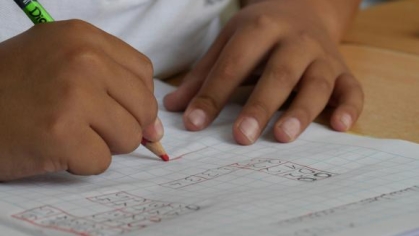
For children with disabilities, the timely implementation of special education programming and services is crucial for their learning, literacy, and overall development. This urgency is reflected in the federal Individuals with Disabilities Education Act (IDEA), which mandates that disputes over special education services be resolved within 45 days. However, a recent class action lawsuit including more than 5,000 children with disabilities and their families revealed that the New Jersey Department of Education (NJDOE) has failed to meet this requirement for decades.
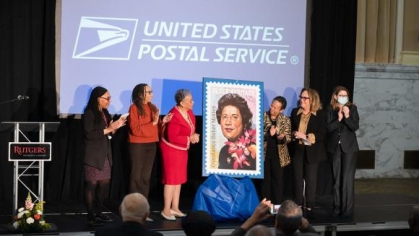
Rutgers Law School hosted a special U.S. postal stamp dedication honoring a legal and civil rights pioneer. The Honorable Constance Baker Motley was the nation’s first Black female federal judge, appointed by President Lyndon B. Johnson. She was also the first Black female state senator in New York and the first Black female Borough President of Manhattan.

Yolanda Vázquez is teaching Property as this year’s Paul A. Rudino Visiting Professor of Law at Rutgers Law School in Newark. She is on leave from the University of Cincinnati College of Law where she teaches criminal procedure, property, immigration, and “crimmigration” (the intersection of criminal law and immigration law.)
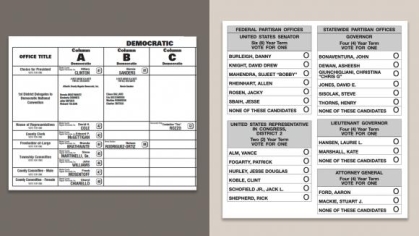
New Jersey’s voter ballots may look very different in the June primary as a result of a lawsuit brought by Rep. Andy Kim’s campaign for U.S. Senate. A federal court judge recently issued a preliminary injunction striking down the use of the party line that groups all candidates running together on the ballot rather than grouping them by office they seek as is done in the rest of the nation. The New Jersey ballot has drawn criticism from a growing grassroots movement because it isolates candidates not endorsed by political parties in a less prominent position – affecting their election chances.

Rutgers Law Professor Chrystin Ondersma reimagines household debt that opens a new path to financial security for all Americans in her new book Dignity Not Debt: An Abolitionist Approach to Economic Justice. Weaving together the histories and trends of U.S. debt policy with her own family story, she debunks the myths that have long governed debt policy, like the belief that debt leads to prosperity or the claim that bad debt is the result of bad choices. Find out how Professor Ondersma's book could revolutionize how policymakers think about debt, thereby changing the legal landscape, in this Q&A by the publisher, University of California Press.
